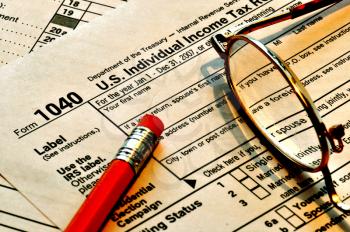In a recent article posted by CNBC, it was reported that American’s now carry an average of $6,329 in credit card debt. The article goes on to explain that as a collective, American’s have a total of $1.14 trillion in credit card. These are staggering numbers for many and we are going to shed a little light on understanding how credit card usage impacts your credit score, both positively and negatively.
Credit cards are an ever-present financial tool that can offer many benefits, from convenience to rewards programs, but their most significant impact might be on your credit score. Understanding how credit cards influence your credit rating is essential for maintaining financial health. Credit cards can either help you build credit or damage it, depending on how responsibly they are managed. Let’s explore how credit cards impact your credit score and the pros and cons of using them.
The Components of a Credit Score
Before delving into how credit cards impact credit, it’s helpful to understand the factors that make up a credit score. The widely used FICO score has five primary components:
- Payment History (35%) – Timely payments on credit accounts significantly boost your score, while missed payments can be detrimental.
- Amounts Owed (30%) – This factor considers your credit utilization ratio, or how much of your available credit you’re using.
- Length of Credit History (15%) – A longer credit history tends to result in a higher score.
- New Credit (10%) – Applying for new credit cards or loans can temporarily lower your score.
- Credit Mix (10%) – Having different types of credit, such as credit cards, mortgages, and loans, can improve your score
The Positive Impacts of Credit Cards on Your Credit Score
- Building Credit History
One of the primary benefits of having a credit card is that it helps you establish a credit history. Lenders want to see that you can manage credit responsibly, and having a credit card provides this opportunity. By using a card regularly and paying the balance in full each month, you demonstrate that you are a responsible borrower. - Improving Your Credit Mix
Credit cards also contribute to your credit mix, which is another component of your credit score. Lenders prefer to see that you can handle different types of credit, including both revolving credit (like credit cards) and installment loans (like a car loan or mortgage). Adding a credit card to your mix, especially if you don’t have one, can improve your score. - Lowering Credit Utilization Ratio
Your credit utilization ratio – the amount of credit you’re using versus the total credit available to you – is a key factor in your credit score. Ideally, you should aim to use less than 30% of your available credit. A higher limit on your credit card, combined with responsible spending, can lower your utilization ratio, improving your score. - Consistent Payment History
Regular, on-time payments are crucial for maintaining a good credit score. Every time you pay your credit card bill on time, it reflects positively on your payment history, the largest component of your credit score. Over time, this builds trust with lenders and boosts your creditworthiness.
The Negative Impacts of Credit Cards on Your Credit Score
- Missed or Late Payments
Missing credit card payments is one of the most damaging actions for your credit score. Payment history accounts for 35% of your FICO score, so a single missed payment can cause a significant drop. If you’re consistently late or miss payments altogether, it can lead to long-term damage to your credit score, not to mention late fees and interest rate hikes. - High Credit Utilization
While credit cards can help improve your credit utilization ratio, they can also work against you if you’re carrying large balances. Using a high percentage of your available credit suggests to lenders that you may be overextended, which can lower your score. For example, maxing out your credit card could negatively impact your score, even if you make on-time payments. - Too Many Credit Inquiries
Each time you apply for a new credit card, the issuer performs a hard inquiry on your credit report. While one or two inquiries won’t have a large effect, multiple hard inquiries in a short period can lower your score. Lenders may see frequent applications as a sign of financial instability. - Short Credit History
Opening a new credit card reduces the average age of your credit accounts, which can hurt your score in the short term. A longer credit history is beneficial, so continually opening new cards may reduce the average age of your accounts and, in turn, slightly lower your score.
Responsible Credit Card Use: A Path to Better Credit
Credit cards can be a valuable tool in building and maintaining a strong credit score, but only if used responsibly. Here are a few tips for making credit cards work in your favor:
- Pay on Time: Always make at least the minimum payment by the due date to avoid late fees and negative marks on your credit report.
- Keep Balances Low: Aim to keep your credit utilization ratio below 30% to maintain a healthy score.
- Limit New Applications: Don’t apply for too many new credit cards at once, as this can temporarily lower your score.
- Monitor Your Credit: Regularly check your credit report to ensure there are no errors or signs of fraud, which could hurt your score.
In conclusion, credit cards can have a significant impact on your credit score, both positively and negatively. By understanding how they affect different aspects of your score, such as payment history, credit utilization, and credit history length, you can use them wisely to build a strong financial foundation.
For more information or to schedule a free consultation with one of our wealth managers, reach out to us today. We would love to talk with you in more detail
Credit Connections Colorado Springs







